- Date & Time: Tuesday, March 11, 2025; 12:00 PM
Speaker: Dick den Hertog, University of Amsterdam
MERL Host: Arvind Raghunathan
Research Areas: Data Analytics, Optimization
Abstract  Increasing ocean plastic pollution is irreversibly harming ecosystems and human economic activities. We partner with a nonprofit organization and use optimization to help clean up oceans from plastic faster. Specifically, we optimize the route of their plastic collection system in the ocean to maximize the quantity of plastic collected over time. We formulate the problem as a longest path problem in a well-structured graph. However, because collection directly impacts future plastic density, the corresponding edge lengths are nonlinear polynomials. After analyzing the structural properties of the edge lengths, we propose a search-and-bound method, which leverages a relaxation of the problem solvable via dynamic programming and clustering, to efficiently find high-quality solutions (within 6% optimal in practice) and develop a tailored branch-and-bound strategy to solve it to provable optimality. On one year of ocean data, our optimization-based routing approach increases the quantity of plastic collected by more than 60% compared with the current routing strategy, hence speeding up the progress toward plastic-free oceans.
Increasing ocean plastic pollution is irreversibly harming ecosystems and human economic activities. We partner with a nonprofit organization and use optimization to help clean up oceans from plastic faster. Specifically, we optimize the route of their plastic collection system in the ocean to maximize the quantity of plastic collected over time. We formulate the problem as a longest path problem in a well-structured graph. However, because collection directly impacts future plastic density, the corresponding edge lengths are nonlinear polynomials. After analyzing the structural properties of the edge lengths, we propose a search-and-bound method, which leverages a relaxation of the problem solvable via dynamic programming and clustering, to efficiently find high-quality solutions (within 6% optimal in practice) and develop a tailored branch-and-bound strategy to solve it to provable optimality. On one year of ocean data, our optimization-based routing approach increases the quantity of plastic collected by more than 60% compared with the current routing strategy, hence speeding up the progress toward plastic-free oceans.
-
- Date & Time: Wednesday, March 5, 2025; 12:00 PM
Speaker: Qing Qu, University of Michigan
MERL Host: Pu (Perry) Wang
Research Areas: Artificial Intelligence, Computational Sensing, Machine Learning, Signal Processing
Abstract 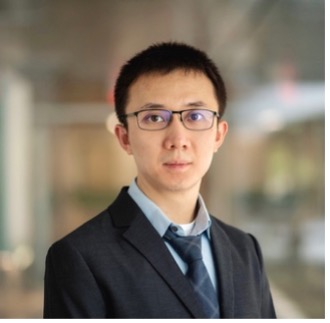 Recent empirical studies have shown that diffusion models possess a unique reproducibility property, transiting from memorization to generalization as the number of training samples increases. This demonstrates that diffusion models can effectively learn image distributions and generate new samples. Remarkably, these models achieve this even with a small number of training samples, despite the challenge of large image dimensions, effectively circumventing the curse of dimensionality. In this work, we provide theoretical insights into this phenomenon by leveraging two key empirical observations: (i) the low intrinsic dimensionality of image datasets and (ii) the low-rank property of the denoising autoencoder in trained diffusion models. With these setups, we rigorously demonstrate that optimizing the training loss of diffusion models is equivalent to solving the canonical subspace clustering problem across the training samples. This insight has practical implications for training and controlling diffusion models. Specifically, it enables us to precisely characterize the minimal number of samples necessary for accurately learning the low-rank data support, shedding light on the phase transition from memorization to generalization. Additionally, we empirically establish a correspondence between the subspaces and the semantic representations of image data, which enables one-step, transferrable, efficient image editing. Moreover, our results have profound practical implications for training efficiency and model safety, and they also open up numerous intriguing theoretical questions for future research.
Recent empirical studies have shown that diffusion models possess a unique reproducibility property, transiting from memorization to generalization as the number of training samples increases. This demonstrates that diffusion models can effectively learn image distributions and generate new samples. Remarkably, these models achieve this even with a small number of training samples, despite the challenge of large image dimensions, effectively circumventing the curse of dimensionality. In this work, we provide theoretical insights into this phenomenon by leveraging two key empirical observations: (i) the low intrinsic dimensionality of image datasets and (ii) the low-rank property of the denoising autoencoder in trained diffusion models. With these setups, we rigorously demonstrate that optimizing the training loss of diffusion models is equivalent to solving the canonical subspace clustering problem across the training samples. This insight has practical implications for training and controlling diffusion models. Specifically, it enables us to precisely characterize the minimal number of samples necessary for accurately learning the low-rank data support, shedding light on the phase transition from memorization to generalization. Additionally, we empirically establish a correspondence between the subspaces and the semantic representations of image data, which enables one-step, transferrable, efficient image editing. Moreover, our results have profound practical implications for training efficiency and model safety, and they also open up numerous intriguing theoretical questions for future research.
-
- Date & Time: Wednesday, April 3, 2024; 12:00 PM
Speaker: Fadel Adib, MIT & Cartesian
MERL Host: Wael H. Ali
Research Areas: Computational Sensing, Dynamical Systems, Signal Processing
Abstract 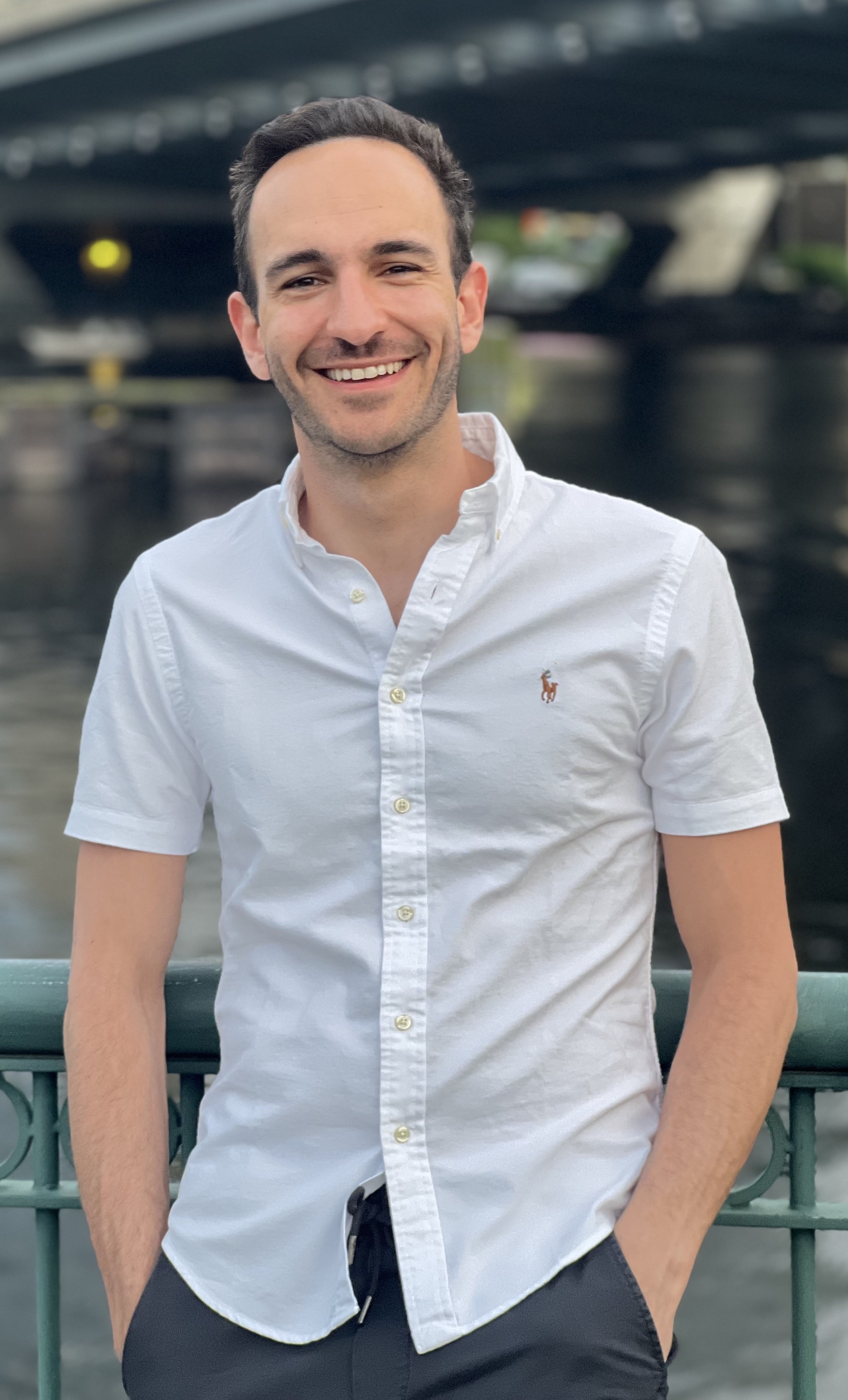 This talk will cover a new generation of technologies that can sense, connect, and perceive the physical world in unprecedented ways. These technologies can uncover hidden worlds around us, promising transformative impact on areas spanning climate change monitoring, ocean mapping, healthcare, food security, supply chain, and even extraterrestrial exploration.
This talk will cover a new generation of technologies that can sense, connect, and perceive the physical world in unprecedented ways. These technologies can uncover hidden worlds around us, promising transformative impact on areas spanning climate change monitoring, ocean mapping, healthcare, food security, supply chain, and even extraterrestrial exploration.
The talk will cover four core technologies invented by Prof. Adib and his team. The first is an ocean internet-of-things (IoT) that uses battery-free sensors for climate change monitoring, marine life discovery, and seafood production (aquaculture). The second is a new perception technology that enables robots to sense and manipulate hidden objects. The third is a new augmented reality headset with ``X-ray vision”, which extends human perception beyond line-of-sight. The fourth is a wireless sensing technology that can “see through walls” and monitor people’s vital signs (including their breathing, heart rate, and emotions), enabling smart environments that sense humans requiring any contact with the human body.
The talk will touch on the journey of these technologies from their inception at MIT to international collaborations and startups that are translating them to real-world impact in areas spanning healthcare, climate change, and supply chain.
-
- Date & Time: Friday, March 8, 2024; 1:00 PM
Speaker: Stefanos Nikolaidis, University of Southern California
MERL Host: Siddarth Jain
Research Areas: Machine Learning, Robotics, Human-Computer Interaction
Abstract 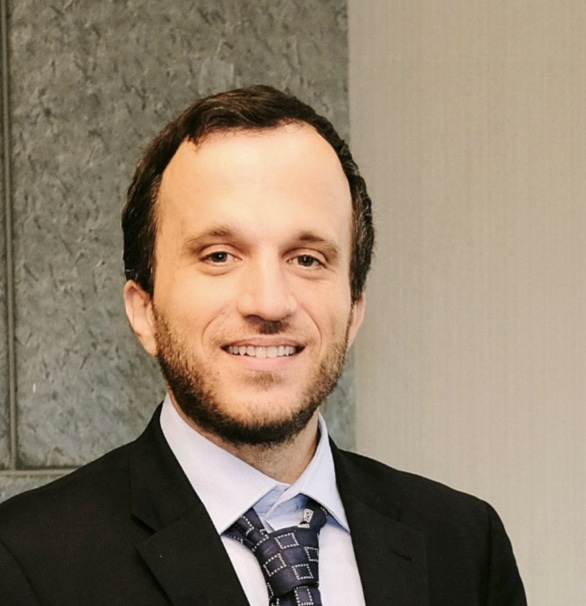 While robots have been successfully deployed in factory floors and warehouses, there has been limited progress in having them perform physical tasks with people at home and in the workplace. I aim to bridge the gap between their current performance in human environments and what robots are capable of doing, by making human-robot interactions efficient and robust.
While robots have been successfully deployed in factory floors and warehouses, there has been limited progress in having them perform physical tasks with people at home and in the workplace. I aim to bridge the gap between their current performance in human environments and what robots are capable of doing, by making human-robot interactions efficient and robust.
In the first part of my talk, I discuss enhancing the efficiency of human-robot interactions by enabling robot manipulators to infer the preference of a human teammate and proactively assist them in a collaborative task. I show how we can leverage similarities between different users and tasks to learn compact representations of user preferences and use these representations as priors for efficient inference.
In the second part, I talk about enhancing the robustness of human-robot interactions by algorithmically generating diverse and realistic scenarios in simulation that reveal system failures. I propose formulating the problem of algorithmic scenario generation as a quality diversity problem and show how standard quality diversity algorithms can discover surprising and unexpected failure cases. I then discuss the development of a new class of quality diversity algorithms that significantly improve the search of the scenario space and the integration of these algorithms with generative models, which enables the generation of complex and realistic scenarios.
Finally, I conclude the talk with applications in mining operations, collaborative manufacturing and assistive care.
-
- Date & Time: Tuesday, November 28, 2023; 12:00 PM
Speaker: Kristina Monakhova, MIT and Cornell
MERL Host: Joshua Rapp
Research Areas: Computational Sensing, Computer Vision, Machine Learning, Signal Processing
Abstract 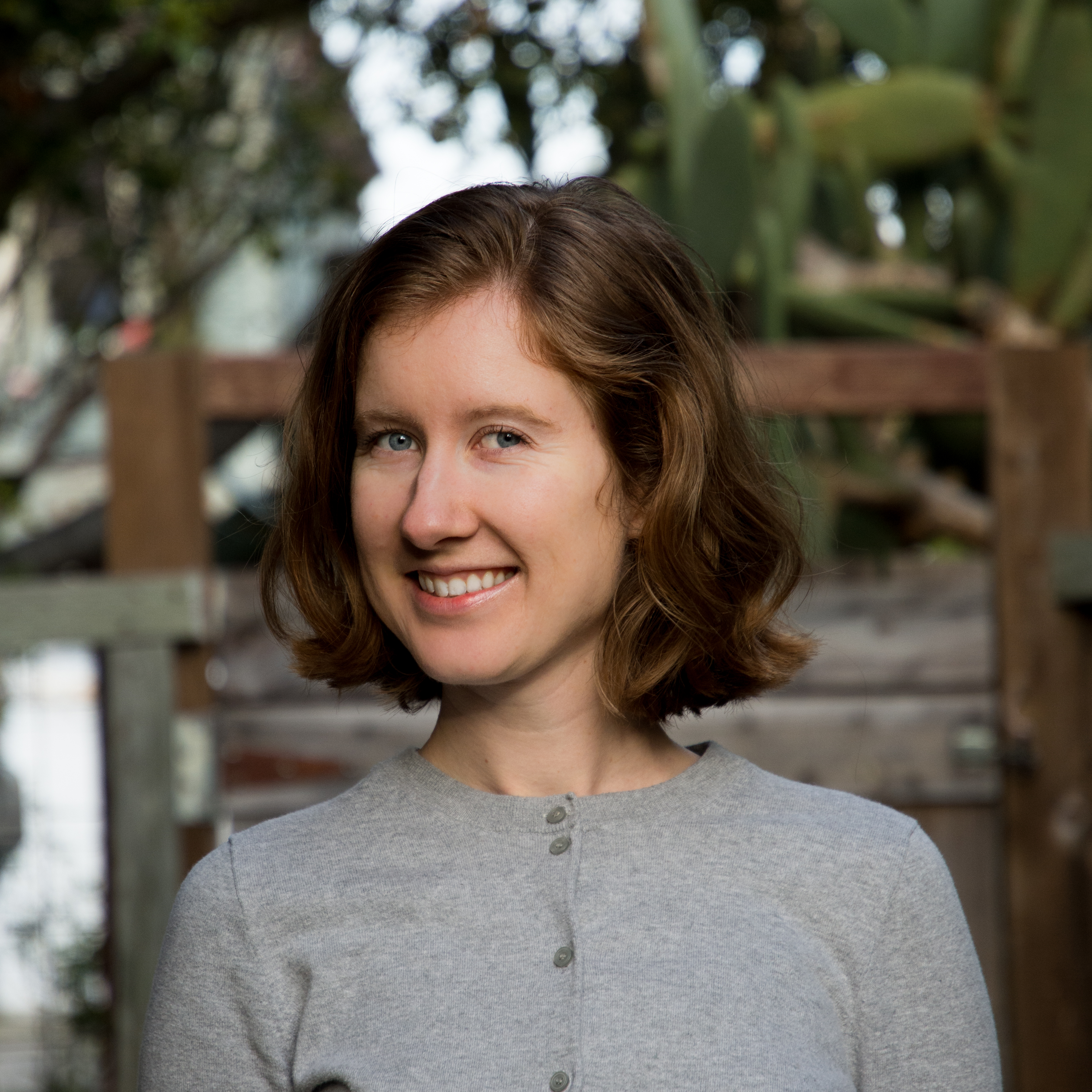 Imaging in low light settings is extremely challenging due to low photon counts, both in photography and in microscopy. In photography, imaging under low light, high gain settings often results in highly structured, non-Gaussian sensor noise that’s hard to characterize or denoise. In this talk, we address this by developing a GAN-tuned physics-based noise model to more accurately represent camera noise at the lowest light, and highest gain settings. Using this noise model, we train a video denoiser using synthetic data and demonstrate photorealistic videography at starlight (submillilux levels of illumination) for the first time.
Imaging in low light settings is extremely challenging due to low photon counts, both in photography and in microscopy. In photography, imaging under low light, high gain settings often results in highly structured, non-Gaussian sensor noise that’s hard to characterize or denoise. In this talk, we address this by developing a GAN-tuned physics-based noise model to more accurately represent camera noise at the lowest light, and highest gain settings. Using this noise model, we train a video denoiser using synthetic data and demonstrate photorealistic videography at starlight (submillilux levels of illumination) for the first time.
For multiphoton microscopy, which is a form a scanning microscopy, there’s a trade-off between field of view, phototoxicity, acquisition time, and image quality, often resulting in noisy measurements. While deep learning-based methods have shown compelling denoising performance, can we trust these methods enough for critical scientific and medical applications? In the second part of this talk, I’ll introduce a learned, distribution-free uncertainty quantification technique that can both denoise and predict pixel-wise uncertainty to gauge how much we can trust our denoiser’s performance. Furthermore, we propose to leverage this learned, pixel-wise uncertainty to drive an adaptive acquisition technique that rescans only the most uncertain regions of a sample. With our sample and algorithm-informed adaptive acquisition, we demonstrate a 120X improvement in total scanning time and total light dose for multiphoton microscopy, while successfully recovering fine structures within the sample.
-
- Date: June 9, 2023
Awarded to: Darius Petermann, Gordon Wichern, Aswin Subramanian, Jonathan Le Roux
MERL Contacts: Jonathan Le Roux; Gordon Wichern
Research Areas: Artificial Intelligence, Machine Learning, Speech & Audio
Brief - Former MERL intern Darius Petermann (Ph.D. Candidate at Indiana University) has received a Best Student Paper Award at the 2023 IEEE International Conference on Acoustics, Speech and Signal Processing (ICASSP 2023) for the paper "Hyperbolic Audio Source Separation", co-authored with MERL researchers Gordon Wichern and Jonathan Le Roux, and former MERL researcher Aswin Subramanian. The paper presents work performed during Darius's internship at MERL in the summer 2022. The paper introduces a framework for audio source separation using embeddings on a hyperbolic manifold that compactly represent the hierarchical relationship between sound sources and time-frequency features. Additionally, the code associated with the paper is publicly available at https://github.com/merlresearch/hyper-unmix.
ICASSP is the flagship conference of the IEEE Signal Processing Society (SPS). ICASSP 2023 was held in the Greek island of Rhodes from June 04 to June 10, 2023, and it was the largest ICASSP in history, with more than 4000 participants, over 6128 submitted papers and 2709 accepted papers. Darius’s paper was first recognized as one of the Top 3% of all papers accepted at the conference, before receiving one of only 5 Best Student Paper Awards during the closing ceremony.
-
- Date: June 9, 2023
Awarded to: Cristian J. Vaca-Rubio, Pu Wang, Toshiaki Koike-Akino, Ye Wang, Petros Boufounos and Petar Popovski
MERL Contacts: Petros T. Boufounos; Toshiaki Koike-Akino; Pu (Perry) Wang; Ye Wang
Research Areas: Artificial Intelligence, Communications, Computational Sensing, Dynamical Systems, Machine Learning, Signal Processing
Brief - A MERL Paper on Wi-Fi sensing was recognized as a Top 3% Paper among all 2709 accepted papers at the 2023 IEEE International Conference on Acoustics, Speech and Signal Processing (ICASSP 2023). Co-authored by Cristian Vaca-Rubio and Petar Popovski from Aalborg University, Denmark, and MERL researchers Pu Wang, Toshiaki Koike-Akino, Ye Wang, and Petros Boufounos, the paper "MmWave Wi-Fi Trajectory Estimation with Continous-Time Neural Dynamic Learning" was also a Best Student Paper Award finalist.
Performed during Cristian’s stay at MERL first as a visiting Marie Skłodowska-Curie Fellow and then as a full-time intern in 2022, this work capitalizes on standards-compliant Wi-Fi signals to perform indoor localization and sensing. The paper uses a neural dynamic learning framework to address technical issues such as low sampling rate and irregular sampling intervals.
ICASSP, a flagship conference of the IEEE Signal Processing Society (SPS), was hosted on the Greek island of Rhodes from June 04 to June 10, 2023. ICASSP 2023 marked the largest ICASSP in history, boasting over 4000 participants and 6128 submitted papers, out of which 2709 were accepted.
-
- Date: April 30, 2023
MERL Contact: Arvind Raghunathan
Research Area: Optimization
Brief - Arvind Raghunathan, Senior Team Leader and Senior Principal Research Scientist with Optimization and Intelligent Robotics team, will serve as the Chair of The 2022 Howard Rosenbrock Prize Committee. Every year, Optimization and Engineering (OPTE) journal honors excellence in scientific research by presenting the Rosenbrock Prize to the best paper published in the previous year. The prize recognizes outstanding research contributions that demonstrate Howard Rosenbrock’s own dedication to bridging the gap between optimization and engineering.
-
- Date & Time: Wednesday, March 29, 2023; 1:00 PM
Speaker: Zoltan Nagy, The University of Texas at Austin
MERL Host: Ankush Chakrabarty
Research Areas: Control, Machine Learning, Multi-Physical Modeling
Abstract 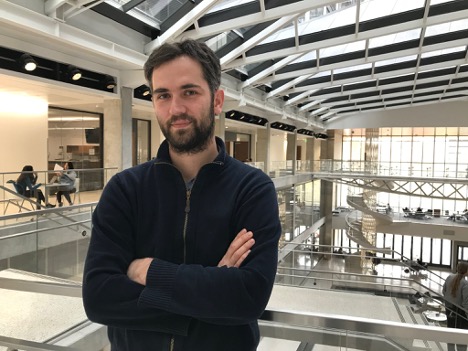 The decarbonization of buildings presents new challenges for the reliability of the electrical grid because of the intermittency of renewable energy sources and increase in grid load brought about by end-use electrification. To restore reliability, grid-interactive efficient buildings can provide flexibility services to the grid through demand response. Residential demand response programs are hindered by the need for manual intervention by customers. To maximize the energy flexibility potential of residential buildings, an advanced control architecture is needed. Reinforcement learning is well-suited for the control of flexible resources as it can adapt to unique building characteristics compared to expert systems. Yet, factors hindering the adoption of RL in real-world applications include its large data requirements for training, control security and generalizability. This talk will cover some of our recent work addressing these challenges. We proposed the MERLIN framework and developed a digital twin of a real-world 17-building grid-interactive residential community in CityLearn. We show that 1) independent RL-controllers for batteries improve building and district level KPIs compared to a reference RBC by tailoring their policies to individual buildings, 2) despite unique occupant behaviors, transferring the RL policy of any one of the buildings to other buildings provides comparable performance while reducing the cost of training, 3) training RL-controllers on limited temporal data that does not capture full seasonality in occupant behavior has little effect on performance. Although, the zero-net-energy (ZNE) condition of the buildings could be maintained or worsened because of controlled batteries, KPIs that are typically improved by ZNE condition (electricity price and carbon emissions) are further improved when the batteries are managed by an advanced controller.
The decarbonization of buildings presents new challenges for the reliability of the electrical grid because of the intermittency of renewable energy sources and increase in grid load brought about by end-use electrification. To restore reliability, grid-interactive efficient buildings can provide flexibility services to the grid through demand response. Residential demand response programs are hindered by the need for manual intervention by customers. To maximize the energy flexibility potential of residential buildings, an advanced control architecture is needed. Reinforcement learning is well-suited for the control of flexible resources as it can adapt to unique building characteristics compared to expert systems. Yet, factors hindering the adoption of RL in real-world applications include its large data requirements for training, control security and generalizability. This talk will cover some of our recent work addressing these challenges. We proposed the MERLIN framework and developed a digital twin of a real-world 17-building grid-interactive residential community in CityLearn. We show that 1) independent RL-controllers for batteries improve building and district level KPIs compared to a reference RBC by tailoring their policies to individual buildings, 2) despite unique occupant behaviors, transferring the RL policy of any one of the buildings to other buildings provides comparable performance while reducing the cost of training, 3) training RL-controllers on limited temporal data that does not capture full seasonality in occupant behavior has little effect on performance. Although, the zero-net-energy (ZNE) condition of the buildings could be maintained or worsened because of controlled batteries, KPIs that are typically improved by ZNE condition (electricity price and carbon emissions) are further improved when the batteries are managed by an advanced controller.
-
- Date: March 27, 2023
Awarded to: Yukimasa Nagai, Takenori Sumi, Jianlin Guo, Philip Orlik, Hiroshi Mineno
MERL Contacts: Jianlin Guo; Philip V. Orlik; Kieran Parsons
Research Areas: Communications, Signal Processing
Brief - MELCO/MERL research paper “IEEE 802.19.3 Standardization for Coexistence of IEEE 802.11ah and IEEE 802.15.4g Systems in Sub-1GHz Frequency Bands” has won the Best Paper Award of the 2022 IPSJ Transactions on Consumer Devices and Systems. The Information Processing Society of Japan (IPSJ) award was established in 1970 and is conferred on the authors of particularly excellent papers, which are published in the IPSJ journals and transactions. Our paper was published by the IPSJ Transaction on Consumer Device and System Vol. 29 in 2021 and authors are Yukimasa Nagai, Takenori Sumi, Jianlin Guo, Philip Orlik and Hiroshi Mineno.
-
- Date & Time: Tuesday, March 14, 2023; 1:00 PM
Speaker: Suraj Srinivas, Harvard University
MERL Host: Suhas Lohit
Research Areas: Artificial Intelligence, Computer Vision, Machine Learning
Abstract 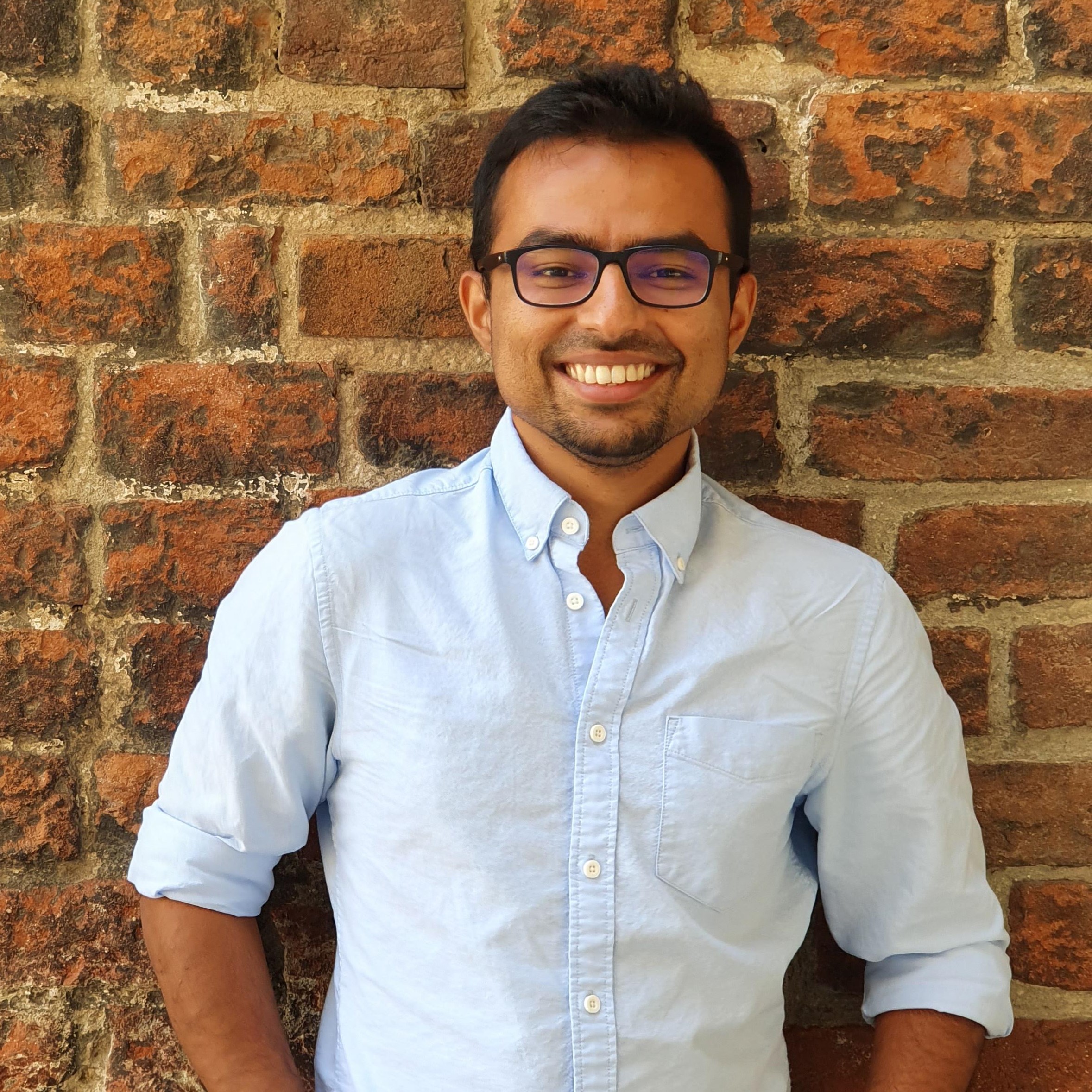 In this talk, I will discuss our recent research on understanding post-hoc interpretability. I will begin by introducing a characterization of post-hoc interpretability methods as local function approximators, and the implications of this viewpoint, including a no-free-lunch theorem for explanations. Next, we shall challenge the assumption that post-hoc explanations provide information about a model's discriminative capabilities p(y|x) and instead demonstrate that many common methods instead rely on a conditional generative model p(x|y). This observation underscores the importance of being cautious when using such methods in practice. Finally, I will propose to resolve this via regularization of model structure, specifically by training low curvature neural networks, resulting in improved model robustness and stable gradients.
In this talk, I will discuss our recent research on understanding post-hoc interpretability. I will begin by introducing a characterization of post-hoc interpretability methods as local function approximators, and the implications of this viewpoint, including a no-free-lunch theorem for explanations. Next, we shall challenge the assumption that post-hoc explanations provide information about a model's discriminative capabilities p(y|x) and instead demonstrate that many common methods instead rely on a conditional generative model p(x|y). This observation underscores the importance of being cautious when using such methods in practice. Finally, I will propose to resolve this via regularization of model structure, specifically by training low curvature neural networks, resulting in improved model robustness and stable gradients.
-
- Date & Time: Wednesday, March 1, 2023; 1:00 PM
Speaker: Shaowu Pan, Rensselaer Polytechnic Institute
MERL Host: Saviz Mowlavi
Research Areas: Computational Sensing, Data Analytics, Machine Learning
Abstract 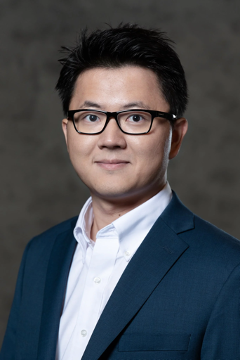 High-dimensional spatio-temporal dynamics can often be encoded in a low-dimensional subspace. Engineering applications for modeling, characterization, design, and control of such large-scale systems often rely on dimensionality reduction to make solutions computationally tractable in real-time. Common existing paradigms for dimensionality reduction include linear methods, such as the singular value decomposition (SVD), and nonlinear methods, such as variants of convolutional autoencoders (CAE). However, these encoding techniques lack the ability to efficiently represent the complexity associated with spatio-temporal data, which often requires variable geometry, non-uniform grid resolution, adaptive meshing, and/or parametric dependencies. To resolve these practical engineering challenges, we propose a general framework called Neural Implicit Flow (NIF) that enables a mesh-agnostic, low-rank representation of large-scale, parametric, spatial-temporal data. NIF consists of two modified multilayer perceptrons (MLPs): (i) ShapeNet, which isolates and represents the spatial complexity, and (ii) ParameterNet, which accounts for any other input complexity, including parametric dependencies, time, and sensor measurements. We demonstrate the utility of NIF for parametric surrogate modeling, enabling the interpretable representation and compression of complex spatio-temporal dynamics, efficient many-spatial-query tasks, and improved generalization performance for sparse reconstruction.
High-dimensional spatio-temporal dynamics can often be encoded in a low-dimensional subspace. Engineering applications for modeling, characterization, design, and control of such large-scale systems often rely on dimensionality reduction to make solutions computationally tractable in real-time. Common existing paradigms for dimensionality reduction include linear methods, such as the singular value decomposition (SVD), and nonlinear methods, such as variants of convolutional autoencoders (CAE). However, these encoding techniques lack the ability to efficiently represent the complexity associated with spatio-temporal data, which often requires variable geometry, non-uniform grid resolution, adaptive meshing, and/or parametric dependencies. To resolve these practical engineering challenges, we propose a general framework called Neural Implicit Flow (NIF) that enables a mesh-agnostic, low-rank representation of large-scale, parametric, spatial-temporal data. NIF consists of two modified multilayer perceptrons (MLPs): (i) ShapeNet, which isolates and represents the spatial complexity, and (ii) ParameterNet, which accounts for any other input complexity, including parametric dependencies, time, and sensor measurements. We demonstrate the utility of NIF for parametric surrogate modeling, enabling the interpretable representation and compression of complex spatio-temporal dynamics, efficient many-spatial-query tasks, and improved generalization performance for sparse reconstruction.
-
- Date & Time: Tuesday, December 20, 2022; 1:00 PM
Speaker: William M. Sisson, WBCSD North America
MERL Host: Scott A. Bortoff Abstract 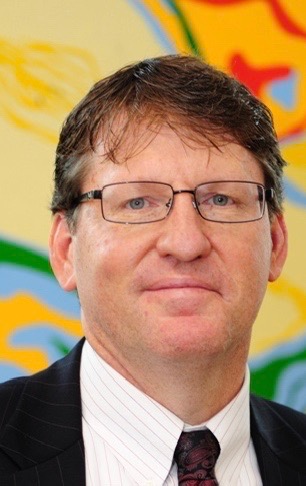 Sustainability today encompasses three interconnected imperatives that all businesses must face and help to address: the increasing impact of climate change, the degradation of natural systems, and the growth of inequality. Business leaders today are increasingly understanding, particularly with the engagement of capital markets, that investors, consumers, and other business stakeholders are setting expectations on how companies are responding to these challenges and preparing for their business impact. More and more companies have shifted from sustainability as a single function in the company to one the is integrated across the firm. This translates directly into how companies are rethinking their product design and innovation efforts for sustainability and the technologies they will require. Some product categories, like heating and air conditioning systems for buildings, are both a part of the problem as well as potentially offering real solutions.
Sustainability today encompasses three interconnected imperatives that all businesses must face and help to address: the increasing impact of climate change, the degradation of natural systems, and the growth of inequality. Business leaders today are increasingly understanding, particularly with the engagement of capital markets, that investors, consumers, and other business stakeholders are setting expectations on how companies are responding to these challenges and preparing for their business impact. More and more companies have shifted from sustainability as a single function in the company to one the is integrated across the firm. This translates directly into how companies are rethinking their product design and innovation efforts for sustainability and the technologies they will require. Some product categories, like heating and air conditioning systems for buildings, are both a part of the problem as well as potentially offering real solutions.
-
- Date: December 15, 2022 - December 17, 2022
MERL Contacts: Jianlin Guo; Philip V. Orlik; Kieran Parsons
Research Areas: Artificial Intelligence, Data Analytics, Machine Learning
Brief - The performance of manufacturing systems is heavily affected by downtime – the time period that the system halts production due to system failure, anomalous operation, or intrusion. Therefore, it is crucial to detect and diagnose anomalies to allow predictive maintenance or intrusion detection to reduce downtime. This talk, titled "Anomaly detection and diagnosis in manufacturing systems using autoencoder", focuses on tackling the challenges arising from predictive maintenance in manufacturing systems. It presents a structured autoencoder and a pre-processed autoencoder for accurate anomaly detection, as well as a statistical-based algorithm and an autoencoder-based algorithm for anomaly diagnosis.
-
- Date: December 8, 2022
MERL Contacts: Toshiaki Koike-Akino; Pu (Perry) Wang
Research Areas: Artificial Intelligence, Communications, Computational Sensing, Machine Learning, Signal Processing
Brief - On December 8, 2022, MERL researchers Toshiaki Koike-Akino and Pu (Perry) Wang gave a 3.5-hour tutorial presentation at the IEEE Global Communications Conference (GLOBECOM). The talk, titled "Post-Deep Learning Era: Emerging Quantum Machine Learning for Sensing and Communications," addressed recent trends, challenges, and advances in sensing and communications. P. Wang presented on use cases, industry trends, signal processing, and deep learning for Wi-Fi integrated sensing and communications (ISAC), while T. Koike-Akino discussed the future of deep learning, giving a comprehensive overview of artificial intelligence (AI) technologies, natural computing, emerging quantum AI, and their diverse applications. The tutorial was conducted remotely. MERL's quantum AI technology was partly reported in the recent press release (https://us.mitsubishielectric.com/en/news/releases/global/2022/1202-a/index.html).
The IEEE GLOBECOM is a highly anticipated event for researchers and industry professionals in the field of communications. Organized by the IEEE Communications Society, the flagship conference is known for its focus on driving innovation in all aspects of the field. Each year, over 3,000 scientific researchers submit proposals for program sessions at the annual conference. The theme of this year's conference was "Accelerating the Digital Transformation through Smart Communications," and featured a comprehensive technical program with 13 symposia, various tutorials and workshops.
-
- Date: December 2, 2022 - December 8, 2022
MERL Contacts: Matthew Brand; Toshiaki Koike-Akino; Jing Liu; Saviz Mowlavi; Kieran Parsons; Ye Wang
Research Areas: Artificial Intelligence, Control, Dynamical Systems, Machine Learning, Signal Processing
Brief - In addition to 5 papers in recent news (https://www.merl.com/news/news-20221129-1450), MERL researchers presented 2 papers at the NeurIPS Conference Workshop, which was held Dec. 2-8. NeurIPS is one of the most prestigious and competitive international conferences in machine learning.
- “Optimal control of PDEs using physics-informed neural networks” by Saviz Mowlavi and Saleh Nabi
Physics-informed neural networks (PINNs) have recently become a popular method for solving forward and inverse problems governed by partial differential equations (PDEs). By incorporating the residual of the PDE into the loss function of a neural network-based surrogate model for the unknown state, PINNs can seamlessly blend measurement data with physical constraints. Here, we extend this framework to PDE-constrained optimal control problems, for which the governing PDE is fully known and the goal is to find a control variable that minimizes a desired cost objective. We validate the performance of the PINN framework by comparing it to state-of-the-art adjoint-based optimization, which performs gradient descent on the discretized control variable while satisfying the discretized PDE.
- “Learning with noisy labels using low-dimensional model trajectory” by Vasu Singla, Shuchin Aeron, Toshiaki Koike-Akino, Matthew E. Brand, Kieran Parsons, Ye Wang
Noisy annotations in real-world datasets pose a challenge for training deep neural networks (DNNs), detrimentally impacting generalization performance as incorrect labels may be memorized. In this work, we probe the observations that early stopping and low-dimensional subspace learning can help address this issue. First, we show that a prior method is sensitive to the early stopping hyper-parameter. Second, we investigate the effectiveness of PCA, for approximating the optimization trajectory under noisy label information. We propose to estimate the low-rank subspace through robust and structured variants of PCA, namely Robust PCA, and Sparse PCA. We find that the subspace estimated through these variants can be less sensitive to early stopping, and can outperform PCA to achieve better test error when trained on noisy labels.
- In addition, new MERL researcher, Jing Liu, also presented a paper entitled “CoPur: Certifiably Robust Collaborative Inference via Feature Purification" based on his previous work before joining MERL. His paper was elected as a spotlight paper to be highlighted in lightening talks and featured paper panel.
-
- Date: December 8, 2022
Awarded to: Arvind Raghunathan
MERL Contact: Arvind Raghunathan
Research Areas: Control, Optimization
Brief - Arvind Raghunathan, Senior Principal Research Scientist in the Data Analytics group, received the IEEE Control Systems Society Roberto Tempo Best CDC Paper Award. The award was presented at the 2022 IEEE Conference on Decision & Control (CDC).
The award is given annually in honor of Roberto Tempo, the 44th President of the IEEE Control Systems Society (CSS). The Tempo Award Committee selects the best paper from the previous year's CDC based on originality, potential impact on any aspect of control theory, technology, or implementation, and for the clarity of writing. This year's award committee was headed by Prof. Patrizio Colaneri, Politecnico di Milano. Arvind's paper was nominated for the award by Prof. Lorenz Biegler, Carnegie Mellon University, with supporting letters from Prof. Andreas Waechter, Northwestern University, and Prof. Victor Zavala, University of Wisconsin-Madison.
-
- Date: December 6, 2022 - December 9, 2022
Where: Cancún, Mexico
MERL Contacts: Ankush Chakrabarty; Devesh K. Jha; Arvind Raghunathan; Diego Romeres; Yebin Wang
Research Areas: Control, Optimization
Brief - MERL researchers presented six papers at the Conference on Decision and Control that was held in Cancún, Mexico from December 6-9, 2022. The papers covered a broad range of topics in the areas of decision making and control, including Bayesian optimization, quadratic programming, solution of differential equations, distributed Kalman filtering, thermal monitoring of batteries, and closed-loop control optimization.
-
- Date & Time: Monday, December 12, 2022; 1:00pm - 5:30pm
Location: MERL, Virtual
Speaker: Prof. Paris Smaragdis, University of Illinois at Urbana-Champaign Brief - MERL is excited to announce the featured keynote speaker for our Virtual Open House 2022:
Prof. Paris Smaragdis from University of Illinois at Urbana-Champaign.
Our virtual open house will take place on December 12, 2022, 1:00pm - 5:30pm (EST).
Join us to learn more about who we are, what we do, and discuss our internship and employment opportunities. Prof. Smaragdis' talk is scheduled for 3:15pm - 3:45pm (EST).
Registration: https://mailchi.mp/merl/voh2022
Keynote Title: Dragging Audio Processing Past the 1970s (and the 2010s!)
Abstract: Audio processing has not changed appreciably in the last 50 years. However, novel tasks, new computational demands, attention to human-centered evaluation, and a strong influence from machine learning, all point towards new ways of thinking about sound. In this talk I will go over multiple examples of how one can modernize standard audio processing in order to serve ambitious project goals. I will specifically talk about the use of meta learning for adaptive filtering, and how we can outperform humans in the game of optimizer design; I will show new ways to represent and process time series based on graph networks that results in highly desirable scaling properties for audio and speech recognition; and I will also talk about how we can move towards unsupervised learning from real-world data in a way that (almost) matches curated data performance and allows highly-distributed learning from audio devices in the wild.
Speaker Bio:
Paris Smaragdis is a Professor and an Associate Department Head in the Computer Science department in the University of Illinois at Urbana-Champaign. He completer his graduate studies and postdoc at MIT in 2001. He has been a research scientist at Mitsubishi Electric Research Labs in Cambridge MA, a senior research scientist at Adobe Research, and an Amazon Scholar with AWS. His research lies in the intersection of signal processing and machine learning, where he has contributed multiple widely used methods for source separation and audio analysis throughout his 150+ publications and 60+ US and international patents. His research has been productized many times worldwide, has been widely used in personal computers and commercial systems, and has been used in award winning movies and music releases. He was recognized by the MIT Technology Review as one of the "world's top innovators under 35 years old" in 2006 (TR35 award) and he has received the IEEE Signal Processing Society (SPS) Best Paper Award twice (2017,2020). He was elected an IEEE Fellow (class of 2015), and selected as an IEEE SPS Distinguished Lecturer (2016-2017). Within IEEE SPS he has served as the chair the Machine Learning for Signal Processing Technical Committee, the Audio and Acoustic Signal Processing Technical Committee, and the Data Science Initiative. He has been elected to and served in the IEEE Signal Processing Society Board of Governors, and is currently the Editor in Chief of the ACM/IEEE Transactions on Audio, Speech, and Language Processing.
-
- Date: December 5, 2022
Where: Cancun, Mexico
Research Areas: Control, Machine Learning
Brief - Karl Berntorp was an invited speaker at the workshop on Gaussian Process Learning-Based Control organized at the Conference on Decision and Control (CDC) 2022 in Cancun, Mexico.
The talk was part of a tutorial-style workshop aimed to provide insight into the fundamentals behind Gaussian processes for modeling and control and sketching some of the open challenges and opportunities using Gaussian processes for modeling and control. The talk titled ``Gaussian Processes for Learning and Control: Opportunities for Real-World Impact" described some of MERL's efforts in using Gaussian processes (GPs) for learning and control, with several application examples and discussing some of the key benefits and limitations with using GPs for learning-based control.
-
- Date & Time: Monday, December 12, 2022; 1:00pm-5:30pm ET
Location: Mitsubishi Electric Research Laboratories (MERL)/Virtual
Research Areas: Applied Physics, Artificial Intelligence, Communications, Computational Sensing, Computer Vision, Control, Data Analytics, Dynamical Systems, Electric Systems, Electronic and Photonic Devices, Machine Learning, Multi-Physical Modeling, Optimization, Robotics, Signal Processing, Speech & Audio, Digital Video
Brief - Join MERL's virtual open house on December 12th, 2022! Featuring a keynote, live sessions, research area booths, and opportunities to interact with our research team. Discover who we are and what we do, and learn about internship and employment opportunities.
-
- Date & Time: Tuesday, November 29, 2022; 1:00 PM
Speaker: Mathew Hampshire-Waugh, Net-Zero Consulting Services LTD
MERL Host: Ye Wang Abstract 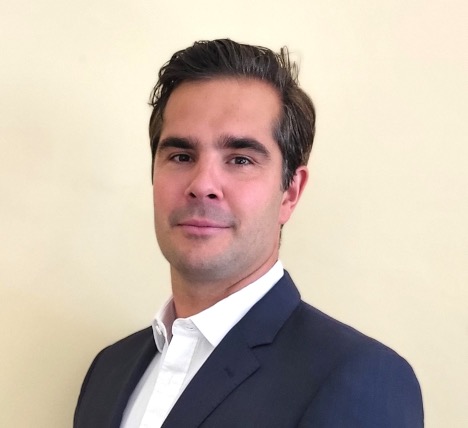 A seminar based upon the Author’s bestselling book, CLIMATE CHANGE and the road to NET-ZERO. The session shall explore how humanity has broken free from the shackles of poverty, suffering, and war and for the first time in human history grown both population and prosperity. It will also delve into how a single species has reconfigured the natural world, repurposed the Earth’s resources, and begun to re-engineer the climate.
A seminar based upon the Author’s bestselling book, CLIMATE CHANGE and the road to NET-ZERO. The session shall explore how humanity has broken free from the shackles of poverty, suffering, and war and for the first time in human history grown both population and prosperity. It will also delve into how a single species has reconfigured the natural world, repurposed the Earth’s resources, and begun to re-engineer the climate.
Using these conflicting narratives, the talk will explore the science, economics, technology, and politics of climate change. Constructing an argument that demonstrates, under many energy transition pathways, solving global warming requires no trade-off between the economy and environment, present and future generations, or rich and poor. Ultimately concluding that a twenty-year transition to a zero-carbon system provides a win-win solution for all on planet Earth.
-
- Date: November 29, 2022 - December 9, 2022
Where: NeurIPS 2022
MERL Contacts: Moitreya Chatterjee; Anoop Cherian; Michael J. Jones; Suhas Lohit
Research Areas: Artificial Intelligence, Computer Vision, Machine Learning, Speech & Audio
Brief - MERL researchers are presenting 5 papers at the NeurIPS Conference, which will be held in New Orleans from Nov 29-Dec 1st, with virtual presentations in the following week. NeurIPS is one of the most prestigious and competitive international conferences in machine learning.
MERL papers in NeurIPS 2022:
1. “AVLEN: Audio-Visual-Language Embodied Navigation in 3D Environments” by Sudipta Paul, Amit Roy-Chowdhary, and Anoop Cherian
This work proposes a unified multimodal task for audio-visual embodied navigation where the navigating agent can also interact and seek help from a human/oracle in natural language when it is uncertain of its navigation actions. We propose a multimodal deep hierarchical reinforcement learning framework for solving this challenging task that allows the agent to learn when to seek help and how to use the language instructions. AVLEN agents can interact anywhere in the 3D navigation space and demonstrate state-of-the-art performances when the audio-goal is sporadic or when distractor sounds are present.
2. “Learning Partial Equivariances From Data” by David W. Romero and Suhas Lohit
Group equivariance serves as a good prior improving data efficiency and generalization for deep neural networks, especially in settings with data or memory constraints. However, if the symmetry groups are misspecified, equivariance can be overly restrictive and lead to bad performance. This paper shows how to build partial group convolutional neural networks that learn to adapt the equivariance levels at each layer that are suitable for the task at hand directly from data. This improves performance while retaining equivariance properties approximately.
3. “Learning Audio-Visual Dynamics Using Scene Graphs for Audio Source Separation” by Moitreya Chatterjee, Narendra Ahuja, and Anoop Cherian
There often exist strong correlations between the 3D motion dynamics of a sounding source and its sound being heard, especially when the source is moving towards or away from the microphone. In this paper, we propose an audio-visual scene-graph that learns and leverages such correlations for improved visually-guided audio separation from an audio mixture, while also allowing predicting the direction of motion of the sound source.
4. “What Makes a "Good" Data Augmentation in Knowledge Distillation - A Statistical Perspective” by Huan Wang, Suhas Lohit, Michael Jones, and Yun Fu
This paper presents theoretical and practical results for understanding what makes a particular data augmentation technique (DA) suitable for knowledge distillation (KD). We design a simple metric that works very well in practice to predict the effectiveness of DA for KD. Based on this metric, we also propose a new data augmentation technique that outperforms other methods for knowledge distillation in image recognition networks.
5. “FeLMi : Few shot Learning with hard Mixup” by Aniket Roy, Anshul Shah, Ketul Shah, Prithviraj Dhar, Anoop Cherian, and Rama Chellappa
Learning from only a few examples is a fundamental challenge in machine learning. Recent approaches show benefits by learning a feature extractor on the abundant and labeled base examples and transferring these to the fewer novel examples. However, the latter stage is often prone to overfitting due to the small size of few-shot datasets. In this paper, we propose a novel uncertainty-based criteria to synthetically produce “hard” and useful data by mixing up real data samples. Our approach leads to state-of-the-art results on various computer vision few-shot benchmarks.
-
- Date: October 26, 2022 - October 28, 2022
Where: American Modelica Conference 2022
MERL Contacts: Scott A. Bortoff; Christopher R. Laughman
Research Area: Multi-Physical Modeling
Brief - MERL researchers provided some key contributions to the 2022 American Modelica Conference, held October 26-28 at the University of Texas, Dallas. Chris Laughman, Senior Team Leader, Multiphysical Systems, was the Executive Coordinator of the conference, and worked to plan and stage the event. Scott A. Bortoff, Chief Scientist, gave a keynote address entitled "Sustainable HVAC: Research Opportunities for Modelicans." The talk posed the question: What are the modeling and control research challenges that, if addressed, will drive meaningful innovation in sustainable building HVAC systems in the next 20 years? In addition, the paper "Performance Enhancements for Zero-Flow Simulation of Vapor Compression Cycles," by Principal Research Scientist Hongtao Qiao and Chris Laughman, was a finalist for the conference Best Paper Award.
-
- Date & Time: Tuesday, November 1, 2022; 1:00 PM
Speaker: Jiajun Wu, Stanford University
MERL Host: Anoop Cherian
Research Areas: Artificial Intelligence, Computer Vision, Machine Learning
Abstract 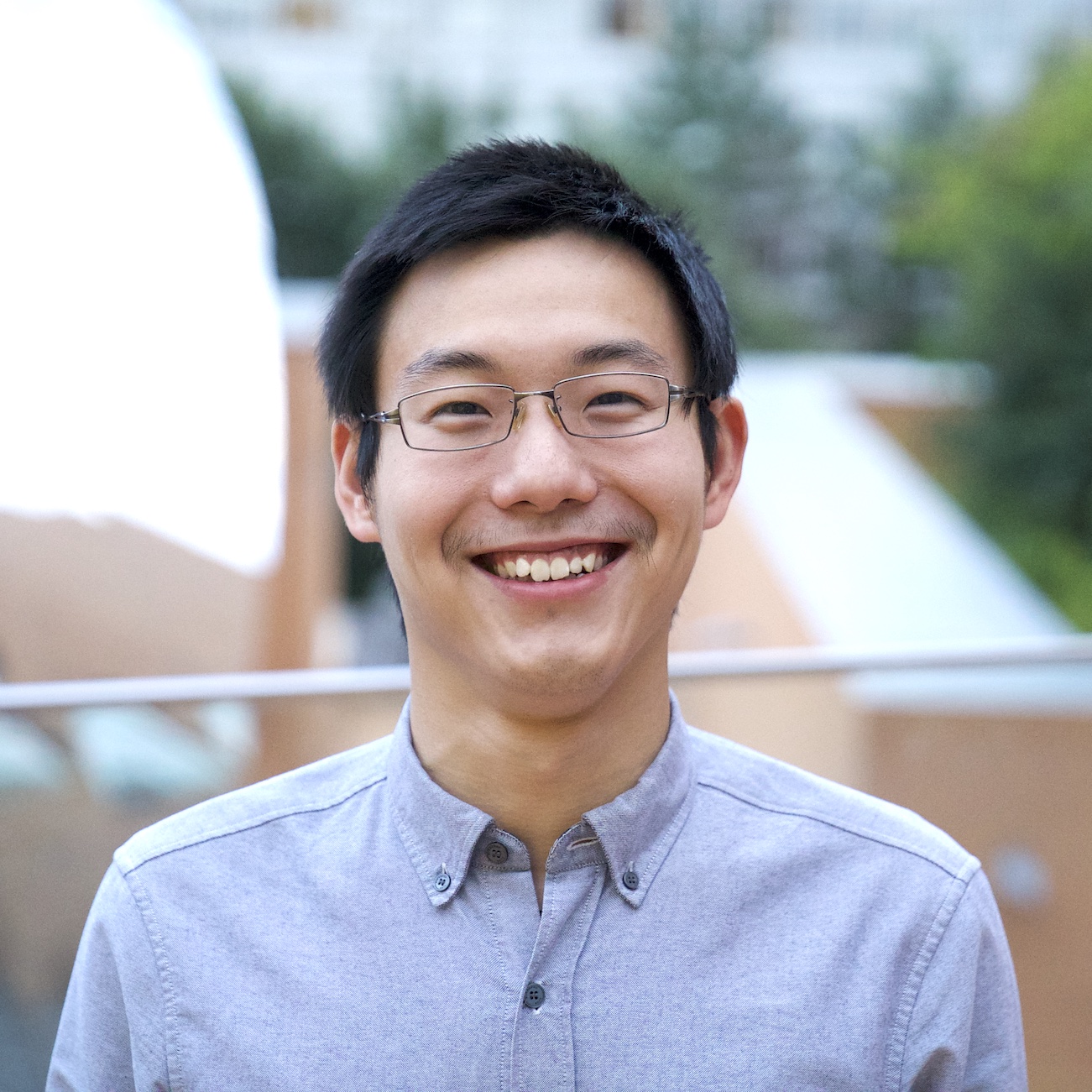 The visual world has its inherent structure: scenes are made of multiple identical objects; different objects may have the same color or material, with a regular layout; each object can be symmetric and have repetitive parts. How can we infer, represent, and use such structure from raw data, without hampering the expressiveness of neural networks? In this talk, I will demonstrate that such structure, or code, can be learned from natural supervision. Here, natural supervision can be from pixels, where neuro-symbolic methods automatically discover repetitive parts and objects for scene synthesis. It can also be from objects, where humans during fabrication introduce priors that can be leveraged by machines to infer regular intrinsics such as texture and material. When solving these problems, structured representations and neural nets play complementary roles: it is more data-efficient to learn with structured representations, and they generalize better to new scenarios with robustly captured high-level information; neural nets effectively extract complex, low-level features from cluttered and noisy visual data.
The visual world has its inherent structure: scenes are made of multiple identical objects; different objects may have the same color or material, with a regular layout; each object can be symmetric and have repetitive parts. How can we infer, represent, and use such structure from raw data, without hampering the expressiveness of neural networks? In this talk, I will demonstrate that such structure, or code, can be learned from natural supervision. Here, natural supervision can be from pixels, where neuro-symbolic methods automatically discover repetitive parts and objects for scene synthesis. It can also be from objects, where humans during fabrication introduce priors that can be leveraged by machines to infer regular intrinsics such as texture and material. When solving these problems, structured representations and neural nets play complementary roles: it is more data-efficient to learn with structured representations, and they generalize better to new scenarios with robustly captured high-level information; neural nets effectively extract complex, low-level features from cluttered and noisy visual data.
-
 Increasing ocean plastic pollution is irreversibly harming ecosystems and human economic activities. We partner with a nonprofit organization and use optimization to help clean up oceans from plastic faster. Specifically, we optimize the route of their plastic collection system in the ocean to maximize the quantity of plastic collected over time. We formulate the problem as a longest path problem in a well-structured graph. However, because collection directly impacts future plastic density, the corresponding edge lengths are nonlinear polynomials. After analyzing the structural properties of the edge lengths, we propose a search-and-bound method, which leverages a relaxation of the problem solvable via dynamic programming and clustering, to efficiently find high-quality solutions (within 6% optimal in practice) and develop a tailored branch-and-bound strategy to solve it to provable optimality. On one year of ocean data, our optimization-based routing approach increases the quantity of plastic collected by more than 60% compared with the current routing strategy, hence speeding up the progress toward plastic-free oceans.
Increasing ocean plastic pollution is irreversibly harming ecosystems and human economic activities. We partner with a nonprofit organization and use optimization to help clean up oceans from plastic faster. Specifically, we optimize the route of their plastic collection system in the ocean to maximize the quantity of plastic collected over time. We formulate the problem as a longest path problem in a well-structured graph. However, because collection directly impacts future plastic density, the corresponding edge lengths are nonlinear polynomials. After analyzing the structural properties of the edge lengths, we propose a search-and-bound method, which leverages a relaxation of the problem solvable via dynamic programming and clustering, to efficiently find high-quality solutions (within 6% optimal in practice) and develop a tailored branch-and-bound strategy to solve it to provable optimality. On one year of ocean data, our optimization-based routing approach increases the quantity of plastic collected by more than 60% compared with the current routing strategy, hence speeding up the progress toward plastic-free oceans. Recent empirical studies have shown that diffusion models possess a unique reproducibility property, transiting from memorization to generalization as the number of training samples increases. This demonstrates that diffusion models can effectively learn image distributions and generate new samples. Remarkably, these models achieve this even with a small number of training samples, despite the challenge of large image dimensions, effectively circumventing the curse of dimensionality. In this work, we provide theoretical insights into this phenomenon by leveraging two key empirical observations: (i) the low intrinsic dimensionality of image datasets and (ii) the low-rank property of the denoising autoencoder in trained diffusion models. With these setups, we rigorously demonstrate that optimizing the training loss of diffusion models is equivalent to solving the canonical subspace clustering problem across the training samples. This insight has practical implications for training and controlling diffusion models. Specifically, it enables us to precisely characterize the minimal number of samples necessary for accurately learning the low-rank data support, shedding light on the phase transition from memorization to generalization. Additionally, we empirically establish a correspondence between the subspaces and the semantic representations of image data, which enables one-step, transferrable, efficient image editing. Moreover, our results have profound practical implications for training efficiency and model safety, and they also open up numerous intriguing theoretical questions for future research.
Recent empirical studies have shown that diffusion models possess a unique reproducibility property, transiting from memorization to generalization as the number of training samples increases. This demonstrates that diffusion models can effectively learn image distributions and generate new samples. Remarkably, these models achieve this even with a small number of training samples, despite the challenge of large image dimensions, effectively circumventing the curse of dimensionality. In this work, we provide theoretical insights into this phenomenon by leveraging two key empirical observations: (i) the low intrinsic dimensionality of image datasets and (ii) the low-rank property of the denoising autoencoder in trained diffusion models. With these setups, we rigorously demonstrate that optimizing the training loss of diffusion models is equivalent to solving the canonical subspace clustering problem across the training samples. This insight has practical implications for training and controlling diffusion models. Specifically, it enables us to precisely characterize the minimal number of samples necessary for accurately learning the low-rank data support, shedding light on the phase transition from memorization to generalization. Additionally, we empirically establish a correspondence between the subspaces and the semantic representations of image data, which enables one-step, transferrable, efficient image editing. Moreover, our results have profound practical implications for training efficiency and model safety, and they also open up numerous intriguing theoretical questions for future research. This talk will cover a new generation of technologies that can sense, connect, and perceive the physical world in unprecedented ways. These technologies can uncover hidden worlds around us, promising transformative impact on areas spanning climate change monitoring, ocean mapping, healthcare, food security, supply chain, and even extraterrestrial exploration.
This talk will cover a new generation of technologies that can sense, connect, and perceive the physical world in unprecedented ways. These technologies can uncover hidden worlds around us, promising transformative impact on areas spanning climate change monitoring, ocean mapping, healthcare, food security, supply chain, and even extraterrestrial exploration.  While robots have been successfully deployed in factory floors and warehouses, there has been limited progress in having them perform physical tasks with people at home and in the workplace. I aim to bridge the gap between their current performance in human environments and what robots are capable of doing, by making human-robot interactions efficient and robust.
While robots have been successfully deployed in factory floors and warehouses, there has been limited progress in having them perform physical tasks with people at home and in the workplace. I aim to bridge the gap between their current performance in human environments and what robots are capable of doing, by making human-robot interactions efficient and robust.  Imaging in low light settings is extremely challenging due to low photon counts, both in photography and in microscopy. In photography, imaging under low light, high gain settings often results in highly structured, non-Gaussian sensor noise that’s hard to characterize or denoise. In this talk, we address this by developing a GAN-tuned physics-based noise model to more accurately represent camera noise at the lowest light, and highest gain settings. Using this noise model, we train a video denoiser using synthetic data and demonstrate photorealistic videography at starlight (submillilux levels of illumination) for the first time.
Imaging in low light settings is extremely challenging due to low photon counts, both in photography and in microscopy. In photography, imaging under low light, high gain settings often results in highly structured, non-Gaussian sensor noise that’s hard to characterize or denoise. In this talk, we address this by developing a GAN-tuned physics-based noise model to more accurately represent camera noise at the lowest light, and highest gain settings. Using this noise model, we train a video denoiser using synthetic data and demonstrate photorealistic videography at starlight (submillilux levels of illumination) for the first time.  The decarbonization of buildings presents new challenges for the reliability of the electrical grid because of the intermittency of renewable energy sources and increase in grid load brought about by end-use electrification. To restore reliability, grid-interactive efficient buildings can provide flexibility services to the grid through demand response. Residential demand response programs are hindered by the need for manual intervention by customers. To maximize the energy flexibility potential of residential buildings, an advanced control architecture is needed. Reinforcement learning is well-suited for the control of flexible resources as it can adapt to unique building characteristics compared to expert systems. Yet, factors hindering the adoption of RL in real-world applications include its large data requirements for training, control security and generalizability. This talk will cover some of our recent work addressing these challenges. We proposed the MERLIN framework and developed a digital twin of a real-world 17-building grid-interactive residential community in CityLearn. We show that 1) independent RL-controllers for batteries improve building and district level KPIs compared to a reference RBC by tailoring their policies to individual buildings, 2) despite unique occupant behaviors, transferring the RL policy of any one of the buildings to other buildings provides comparable performance while reducing the cost of training, 3) training RL-controllers on limited temporal data that does not capture full seasonality in occupant behavior has little effect on performance. Although, the zero-net-energy (ZNE) condition of the buildings could be maintained or worsened because of controlled batteries, KPIs that are typically improved by ZNE condition (electricity price and carbon emissions) are further improved when the batteries are managed by an advanced controller.
The decarbonization of buildings presents new challenges for the reliability of the electrical grid because of the intermittency of renewable energy sources and increase in grid load brought about by end-use electrification. To restore reliability, grid-interactive efficient buildings can provide flexibility services to the grid through demand response. Residential demand response programs are hindered by the need for manual intervention by customers. To maximize the energy flexibility potential of residential buildings, an advanced control architecture is needed. Reinforcement learning is well-suited for the control of flexible resources as it can adapt to unique building characteristics compared to expert systems. Yet, factors hindering the adoption of RL in real-world applications include its large data requirements for training, control security and generalizability. This talk will cover some of our recent work addressing these challenges. We proposed the MERLIN framework and developed a digital twin of a real-world 17-building grid-interactive residential community in CityLearn. We show that 1) independent RL-controllers for batteries improve building and district level KPIs compared to a reference RBC by tailoring their policies to individual buildings, 2) despite unique occupant behaviors, transferring the RL policy of any one of the buildings to other buildings provides comparable performance while reducing the cost of training, 3) training RL-controllers on limited temporal data that does not capture full seasonality in occupant behavior has little effect on performance. Although, the zero-net-energy (ZNE) condition of the buildings could be maintained or worsened because of controlled batteries, KPIs that are typically improved by ZNE condition (electricity price and carbon emissions) are further improved when the batteries are managed by an advanced controller. In this talk, I will discuss our recent research on understanding post-hoc interpretability. I will begin by introducing a characterization of post-hoc interpretability methods as local function approximators, and the implications of this viewpoint, including a no-free-lunch theorem for explanations. Next, we shall challenge the assumption that post-hoc explanations provide information about a model's discriminative capabilities p(y|x) and instead demonstrate that many common methods instead rely on a conditional generative model p(x|y). This observation underscores the importance of being cautious when using such methods in practice. Finally, I will propose to resolve this via regularization of model structure, specifically by training low curvature neural networks, resulting in improved model robustness and stable gradients.
In this talk, I will discuss our recent research on understanding post-hoc interpretability. I will begin by introducing a characterization of post-hoc interpretability methods as local function approximators, and the implications of this viewpoint, including a no-free-lunch theorem for explanations. Next, we shall challenge the assumption that post-hoc explanations provide information about a model's discriminative capabilities p(y|x) and instead demonstrate that many common methods instead rely on a conditional generative model p(x|y). This observation underscores the importance of being cautious when using such methods in practice. Finally, I will propose to resolve this via regularization of model structure, specifically by training low curvature neural networks, resulting in improved model robustness and stable gradients. High-dimensional spatio-temporal dynamics can often be encoded in a low-dimensional subspace. Engineering applications for modeling, characterization, design, and control of such large-scale systems often rely on dimensionality reduction to make solutions computationally tractable in real-time. Common existing paradigms for dimensionality reduction include linear methods, such as the singular value decomposition (SVD), and nonlinear methods, such as variants of convolutional autoencoders (CAE). However, these encoding techniques lack the ability to efficiently represent the complexity associated with spatio-temporal data, which often requires variable geometry, non-uniform grid resolution, adaptive meshing, and/or parametric dependencies. To resolve these practical engineering challenges, we propose a general framework called Neural Implicit Flow (NIF) that enables a mesh-agnostic, low-rank representation of large-scale, parametric, spatial-temporal data. NIF consists of two modified multilayer perceptrons (MLPs): (i) ShapeNet, which isolates and represents the spatial complexity, and (ii) ParameterNet, which accounts for any other input complexity, including parametric dependencies, time, and sensor measurements. We demonstrate the utility of NIF for parametric surrogate modeling, enabling the interpretable representation and compression of complex spatio-temporal dynamics, efficient many-spatial-query tasks, and improved generalization performance for sparse reconstruction.
High-dimensional spatio-temporal dynamics can often be encoded in a low-dimensional subspace. Engineering applications for modeling, characterization, design, and control of such large-scale systems often rely on dimensionality reduction to make solutions computationally tractable in real-time. Common existing paradigms for dimensionality reduction include linear methods, such as the singular value decomposition (SVD), and nonlinear methods, such as variants of convolutional autoencoders (CAE). However, these encoding techniques lack the ability to efficiently represent the complexity associated with spatio-temporal data, which often requires variable geometry, non-uniform grid resolution, adaptive meshing, and/or parametric dependencies. To resolve these practical engineering challenges, we propose a general framework called Neural Implicit Flow (NIF) that enables a mesh-agnostic, low-rank representation of large-scale, parametric, spatial-temporal data. NIF consists of two modified multilayer perceptrons (MLPs): (i) ShapeNet, which isolates and represents the spatial complexity, and (ii) ParameterNet, which accounts for any other input complexity, including parametric dependencies, time, and sensor measurements. We demonstrate the utility of NIF for parametric surrogate modeling, enabling the interpretable representation and compression of complex spatio-temporal dynamics, efficient many-spatial-query tasks, and improved generalization performance for sparse reconstruction. Sustainability today encompasses three interconnected imperatives that all businesses must face and help to address: the increasing impact of climate change, the degradation of natural systems, and the growth of inequality. Business leaders today are increasingly understanding, particularly with the engagement of capital markets, that investors, consumers, and other business stakeholders are setting expectations on how companies are responding to these challenges and preparing for their business impact. More and more companies have shifted from sustainability as a single function in the company to one the is integrated across the firm. This translates directly into how companies are rethinking their product design and innovation efforts for sustainability and the technologies they will require. Some product categories, like heating and air conditioning systems for buildings, are both a part of the problem as well as potentially offering real solutions.
Sustainability today encompasses three interconnected imperatives that all businesses must face and help to address: the increasing impact of climate change, the degradation of natural systems, and the growth of inequality. Business leaders today are increasingly understanding, particularly with the engagement of capital markets, that investors, consumers, and other business stakeholders are setting expectations on how companies are responding to these challenges and preparing for their business impact. More and more companies have shifted from sustainability as a single function in the company to one the is integrated across the firm. This translates directly into how companies are rethinking their product design and innovation efforts for sustainability and the technologies they will require. Some product categories, like heating and air conditioning systems for buildings, are both a part of the problem as well as potentially offering real solutions. A seminar based upon the Author’s bestselling book, CLIMATE CHANGE and the road to NET-ZERO. The session shall explore how humanity has broken free from the shackles of poverty, suffering, and war and for the first time in human history grown both population and prosperity. It will also delve into how a single species has reconfigured the natural world, repurposed the Earth’s resources, and begun to re-engineer the climate.
A seminar based upon the Author’s bestselling book, CLIMATE CHANGE and the road to NET-ZERO. The session shall explore how humanity has broken free from the shackles of poverty, suffering, and war and for the first time in human history grown both population and prosperity. It will also delve into how a single species has reconfigured the natural world, repurposed the Earth’s resources, and begun to re-engineer the climate.  The visual world has its inherent structure: scenes are made of multiple identical objects; different objects may have the same color or material, with a regular layout; each object can be symmetric and have repetitive parts. How can we infer, represent, and use such structure from raw data, without hampering the expressiveness of neural networks? In this talk, I will demonstrate that such structure, or code, can be learned from natural supervision. Here, natural supervision can be from pixels, where neuro-symbolic methods automatically discover repetitive parts and objects for scene synthesis. It can also be from objects, where humans during fabrication introduce priors that can be leveraged by machines to infer regular intrinsics such as texture and material. When solving these problems, structured representations and neural nets play complementary roles: it is more data-efficient to learn with structured representations, and they generalize better to new scenarios with robustly captured high-level information; neural nets effectively extract complex, low-level features from cluttered and noisy visual data.
The visual world has its inherent structure: scenes are made of multiple identical objects; different objects may have the same color or material, with a regular layout; each object can be symmetric and have repetitive parts. How can we infer, represent, and use such structure from raw data, without hampering the expressiveness of neural networks? In this talk, I will demonstrate that such structure, or code, can be learned from natural supervision. Here, natural supervision can be from pixels, where neuro-symbolic methods automatically discover repetitive parts and objects for scene synthesis. It can also be from objects, where humans during fabrication introduce priors that can be leveraged by machines to infer regular intrinsics such as texture and material. When solving these problems, structured representations and neural nets play complementary roles: it is more data-efficient to learn with structured representations, and they generalize better to new scenarios with robustly captured high-level information; neural nets effectively extract complex, low-level features from cluttered and noisy visual data.